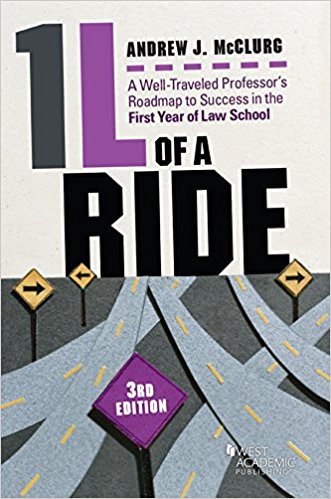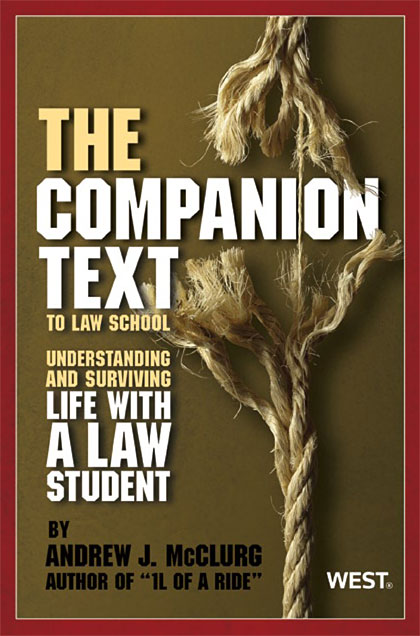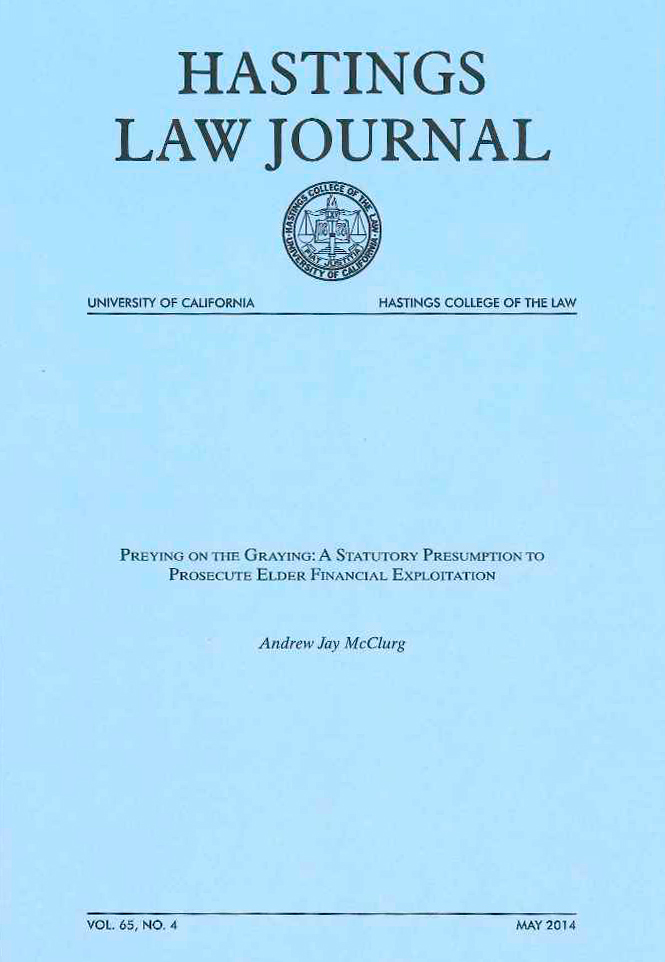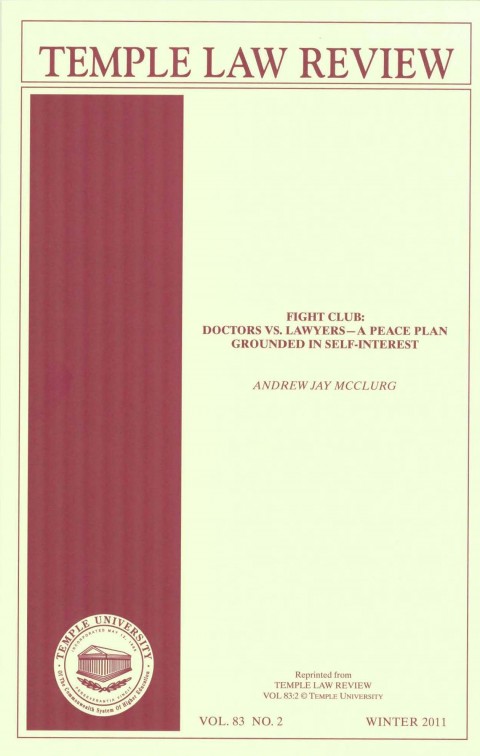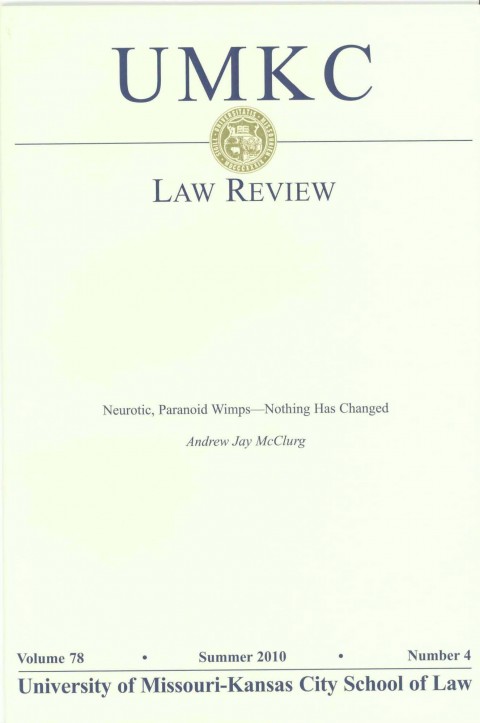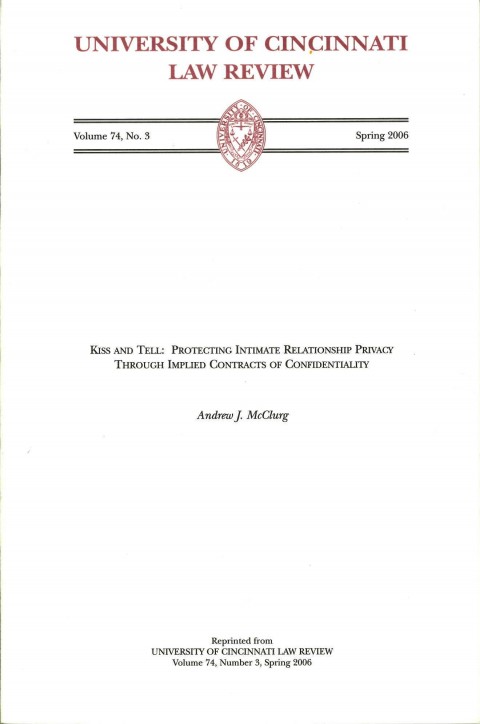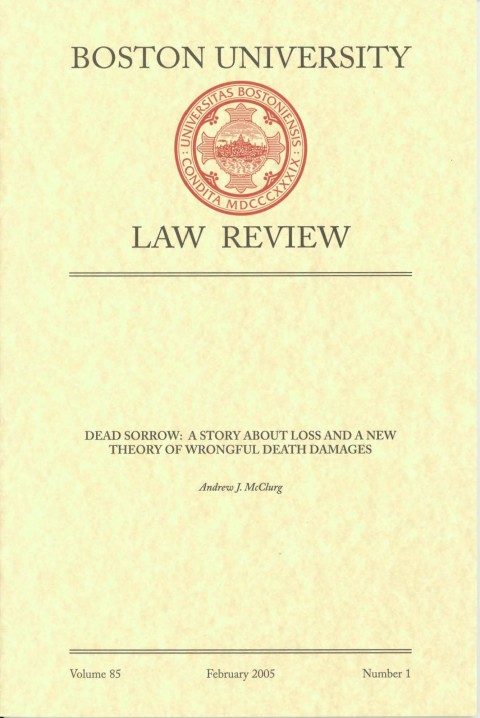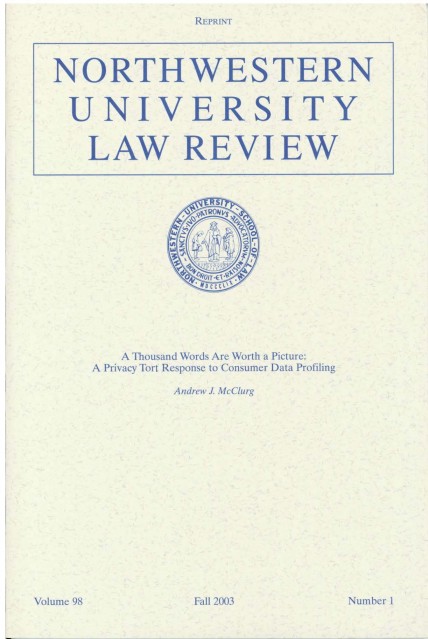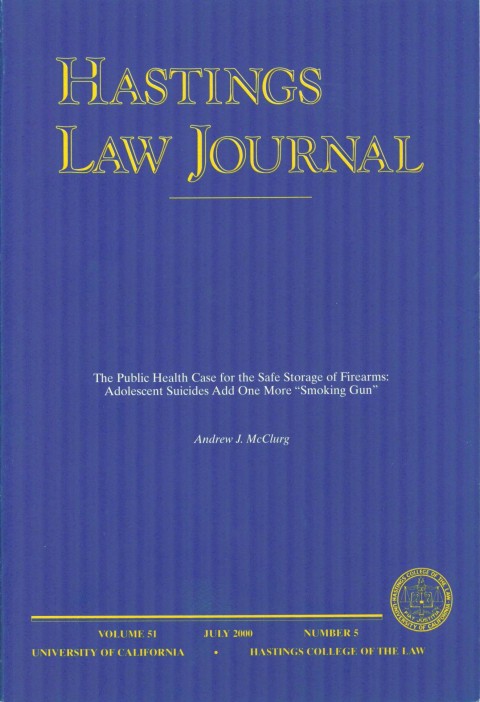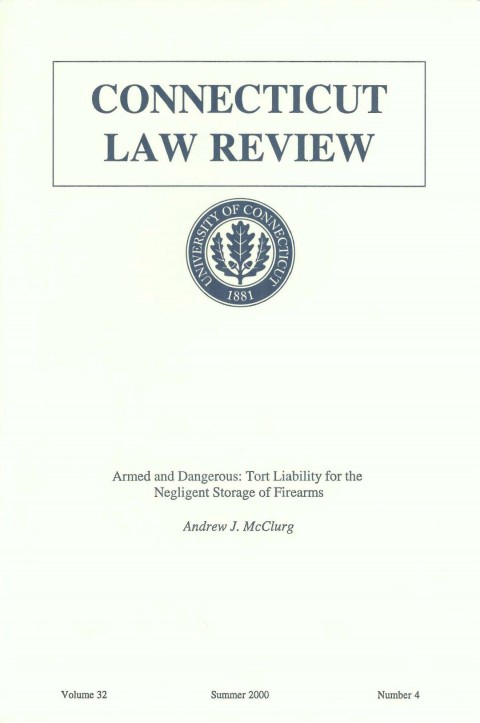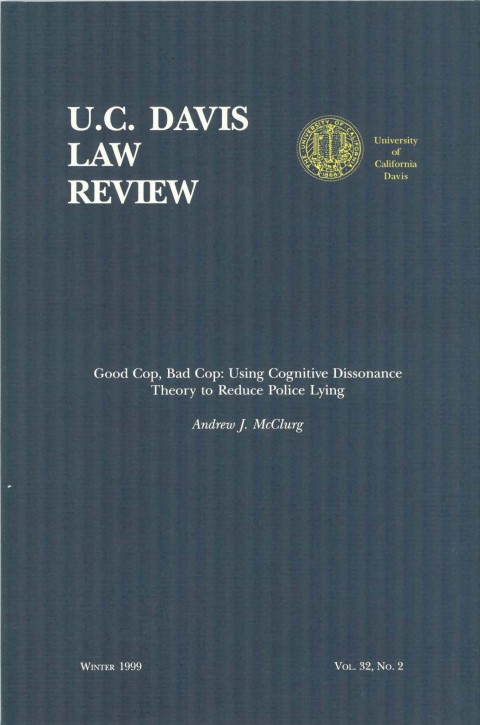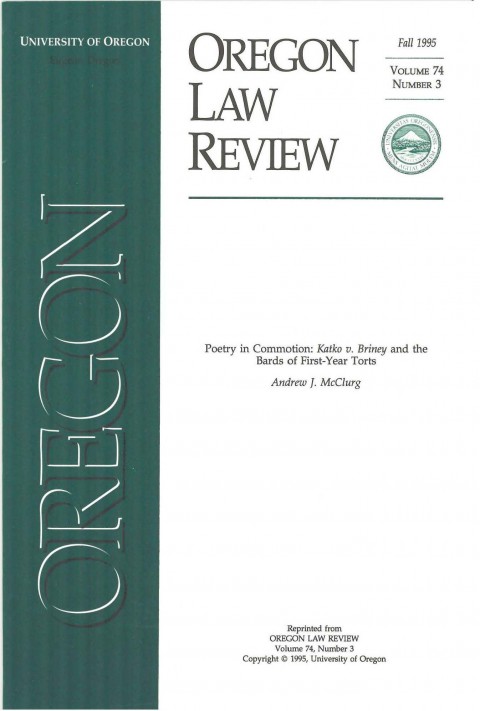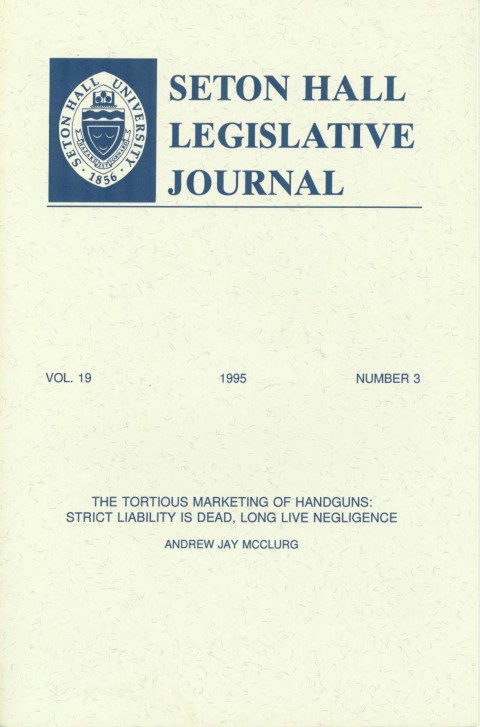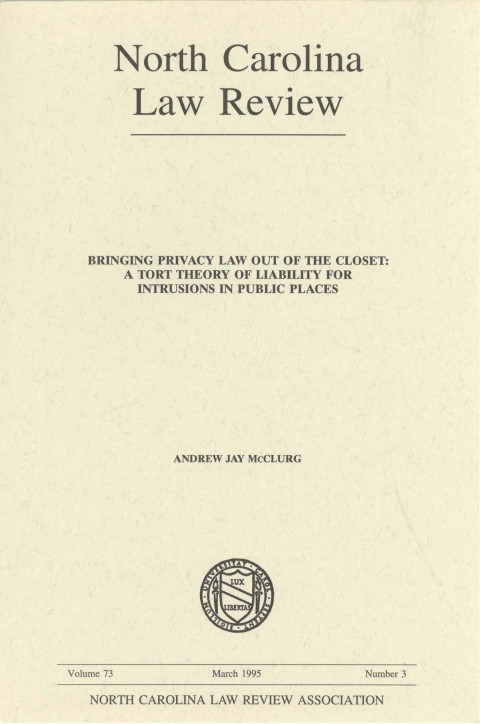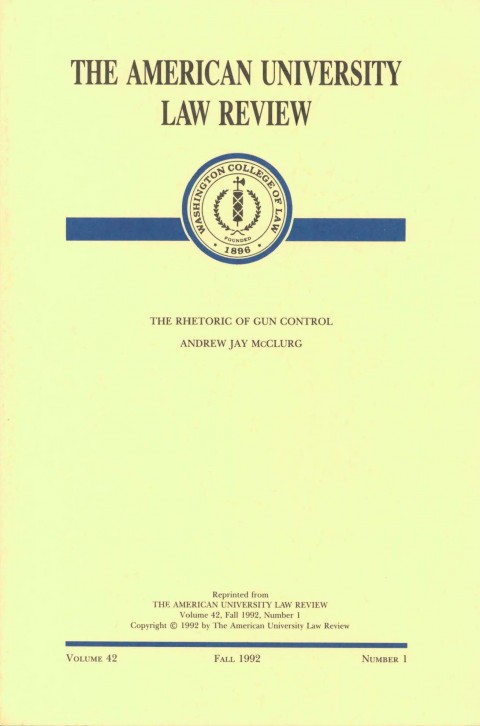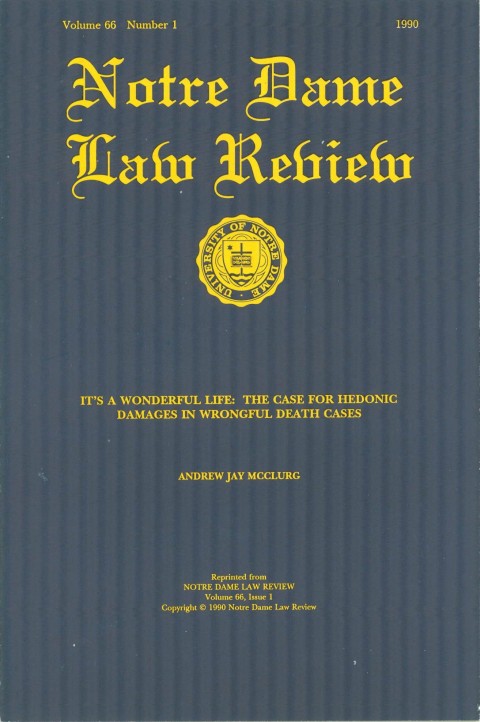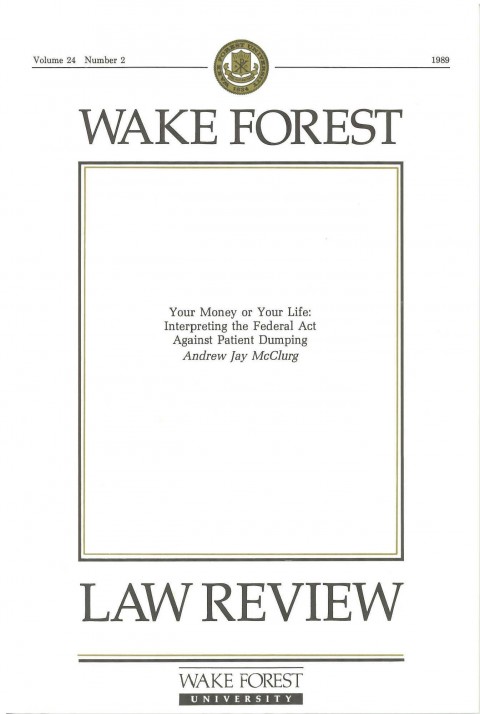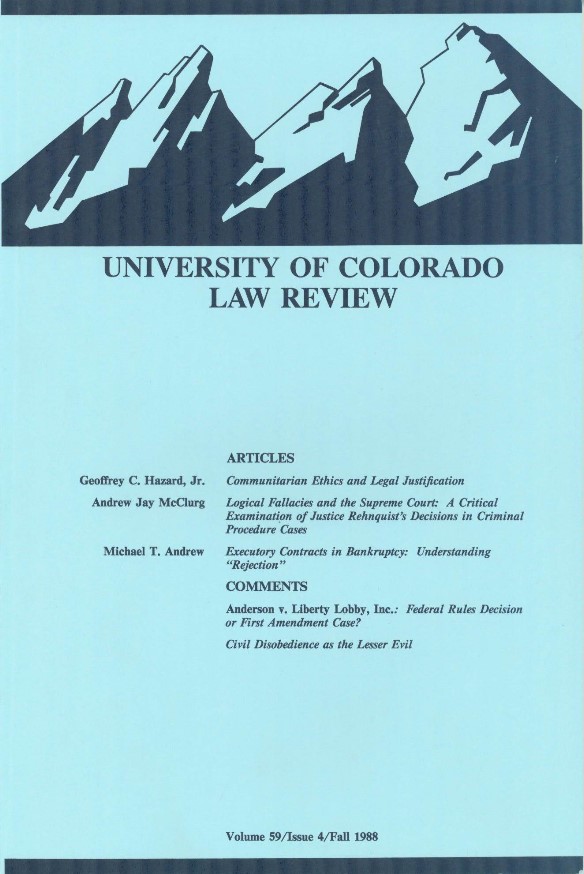June 3rd, 2012 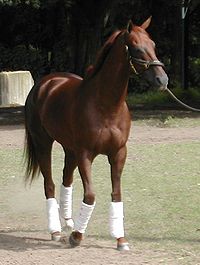 Triple Crown threat Funny Cide caught up in weird judicial opinion. The total weirdness of Florida Court of Appeals Judge Farmer’s opinion in Funny Cide Ventures, LLC v. Miami Herald Publ’g Co. gets the case into Lawhaha.com’s Strange Judicial Opinions Hall of Fame.
Here’s a first in judicial writing: an appellate judge writes an opinion in an offbeat fiction-style based on a tune from Guys and Dolls, can’t get the other judges to go along with his approach, so decides to attach his creative opinion to the court’s per curiam opinion together with a lengthy preface explaining his unique approach to written adjudication.
Confused? Let’s back up. In 2003, Funny Cide won both the Kentucky Derby and the Preakness, one race away from the Triple Crown.
After the Kentucky Derby, the Miami Herald published an article implying that the jockey cheated by using some kind of illegal battery-powered device during the race. The Herald later admitted it made an error and retracted the story. Meanwhile, Funny Cide placed third at the Belmont, missing out on becoming only the twelfth horse in history to win the Triple Crown.
In a lawsuit for injurious falsehood against the Herald, Funny Cide’s owners claimed the article caused substantial damage, including the chance to win the Belmont because “the article caused the jockey to over-ride the horse in the Preakness in an attempt to vindicate himself.”
The defendant moved for summary judgment, which was granted on the ground that the plaintiffs had not alleged direct and immediate damages from the article. The appellate court affirmed in a brief per curiam opinion.
So far, so good.
Then the reader stumbles on Judge Farmer’s … not sure what to call it … tacked on at the end of the court’s opinion. It’s not a concurring or dissenting opinion, and is not labeled as an appendix.
His “attachment” to the majority opinion is not a dissent from the reasoning of his brethren’s opinion, but the boring way in which they expressed it.
Judge Farmer starts by assailing traditional stilted judicial opinion writing, then explains why a humanized, pot-boiler narrative approach might be better. He concludes by suggesting readers compare the two approaches–his and the majority’s–and decide which is better.
Basically, he seemed to be saying: “Hey, I labored over writing this really fun and wild opinion, but these dudes I work with on the court are too straitlaced to get it, so here it is for your reading pleasure.”
Here are excerpts, first, from his attack on traditional judicial opinion writing:
Most [judicial opinions are] … dreary and tedious. …
A surprising number are way too long. There is often a painstaking account of background and trial which turns out to be unnecessary to grasp the essential issues to be decided. Many have extended discussions of rules and principles no one really challenges, or few would dispute. Judges pile on needless details of date, time and place, modified by confusing identifying terms (appellant-cross appellee-defendant) without regard to clarity. Extended comparative quotations alternate with exposition of one sort or another. Legal issues are analyzed through mind-numbing, many-factored “tests”. Each factor is unloaded nit by nit, as though the judges actually decided the dispute in precisely that way. Arcane legal terminology is woven in and out, even though simpler, plainer words could be used. Simplicity, tone, style, voice, personality, levity-all are shunned.
Judge Farmer concedes he’s been guilty of what he describes, then sets out to change his opinion-writing ways:
From the very moment of my appointment as a judge, I have chafed under this norm for appellate opinion writing. How did it become conventional? Who made it required? Why hasn’t it been changed?
I struggled against it. There must be other styles, different tones, alternate voices. Not for every opinion. But for some.
One technique occurred to me. This idea would have an opinion in some of the forms, styles and characteristics associated with fiction. Good fiction is set in human experience. Good fiction illuminates.
***
I had decided that the style of some opinions could-and should-be unconventionally changed for greater openness to all readers. I would try to write some opinions in styles and tones calculated to make legal reasoning clearer for those without law degrees. Then came this case.
When the panel conferred after oral argument, I did not detect any disagreement. … So after thinking on the matter, I conceived of an unconventional approach. I would try a style, a tone, a voice to make apparent even to non-lawyers what I believed is the basic defect in their argument. The very style of the opinion itself would illuminate the legal analysis and outcome.
As it turns out, the other two members of the panel could not endorse the opinion or even some slightly altered version. They had concerns. Some other judges shared them. So I give this explanation for what I wrote, laying my version along side the panel’s substitute. Readers can compare a conventional opinion with an unconventional style-the pious with the impious.
Then comes the opinion. Here’s an excerpt, inspired by the opening song of Guys and Dolls, Fugue for the Tinhorns:
Then the horse won the Preakness Stakes. And it’s not even close. Wins by nearly ten lengths. The horse is so far out front, looks like he could make it past the wire and into the barn before they can take the photo. Hardly anyone asked if the horse ran out of gas for the Belmont. Are you kidding? Racing was all stirred up about the Crown. The feedbox noise grew hot.
Was it a dream, or did I hear stories about a guy who read in the paper the horse wins it all by a half? About another guy who said it was no bum steer, it was from a handicapper that’s real sincere? Even about a third guy who knew this is the horse’s time because his father’s jockey’s brother’s a friend?
Whatever. It’s a lock. Two jewels for the Crown. Make room for the third.
Only, wait a minute. Did I hear another story about this one guy who wasn’t so sure? Said it all depends if it rained last night?
For the life of me, I can’t understand why the other judges on the panel were hesitant to join in this opinion.
— Funny Cide Ventures, LLC v. Miami Herald Publ’g Co., 955 So.2d 1241, 1243–47 (Fla. Dist. Ct. App. 2007). Thanks to Kevin McDowell and James Heelan.
November 28th, 2011 Kentucky Judge Martin J. Sheehan was happier than a pig in … on second thought, we won’t try to imitate his unusual judicial writing style here. But he was darn happy that a case settled. How happy? Let’s hear it from him:
And such news of an amicable settlement having made this Court happier than a tick on a fat dog because it is otherwise busier than a one legged cat in a sand box and, quite frankly, would have rather jumped naked off of a twelve foot step ladder into a five gallon bucket of porcupines than have presided over a two week trial of the herein dispute, a trial which, no doubt, would have made the jury more confused than a hungry baby in a topless bar and made the parties and their attorneys madder than mosquitoes in a mannequin factor [the jury trial is cancelled].
Glad you’re pleased, Judge!
— Kisel v. Schwartz & Maines & Ruby Co., Case No. 09-CI-00165, Kenton Circuit Ct., Ky, Jul. 19, 2011. Thanks to Mary Mulherin, Andrei Bogos and others.
November 28th, 2011  Home of the Missouri Court of Appeals? Ol’ Frank Zotter happened upon this little ol’ case and we reckon we’re mighty glad he did.
In State v. Knowles, the Missouri Court of Appeals, a good ol’ bunch of guys and gals from over in them parts, took up an appeal where the trial judge had tossed out a criminal information for receiving stolen property. Well, shucks, we’ll just let the court tell y’all about it:
Old Dave Baird, the prosecuting attorney up in Nodaway Count, thought he had a case against Les Knowles for receiving stolen property, to-wit, a chain saw, so he up and files on Les.
Now Les was a bit impecunious, so the judge appointed him a lawyer, old Dan Radke, the public defender from down around St. Joe. Now, Dan, he looks at that old information and decides to pick a nit or two, so he tells the judge that the information old Dave filed against Les is no good …. Dan says Dave charged that Les “kept” the stolen chain saw and that’s not against the law. You don’t commit that crime by “keeping” the chain saw, says Dan; the law says you commit the crime of “receiving” if you “retain” the saw, and that’s not what Dave charged Les with, and the judge should throw Dave out of court. And that’s exactly what the judge did.
But old Dave was not having any of that. No, sir! …
Bystanders could plainly see the fire in old Dave’s eyes. He was not backing down. Sure. Dave could simply refile and start over with a new information by changing only one word. Strike “kept”; insert “retained.” But that is not the point. Dave knows he is right.
And so he is.
So we’ll just send the case back to Judge Kennish and tell the boys to get on with the prosecution.
— State v. Knowles, 739 S.W.2d 753, 754 (Mo. Ct. App. 1987). Thanks to Frank Zotter.
November 22nd, 2011  One-third of the way toward resolving lawyer disputes. Fed up with wrangling lawyers, U.S. District Judge Gregory A. Presnell (M.D. Fla.) came up with a novel dispute resolution procedure: the game of “rock, paper, scissors.”
In what Judge Presnell called “the latest in a series of Gordian knots that the parties have been unable to untangle” without court assistance, the parties were unable to agree on a location for a deposition.
The judge directed the lawyers to convene at a neutral site, and if they couldn’t agree on even that much, to meet on the steps of the federal courthouse. He further instructed that:
Each lawyer shall be entitled to be accompanied by one paralegal who shall act as an attendant and witness. At that time and location, counsel shall engage in one (1) game of “rock, paper, scissors.” The winner of this engagement shall be entitled to select the location for the 30(b)(6) deposition ….
Actually, rock, paper, scissors resolutions are anything but novel. Although there are competing theories of the origin of the game, according to Wikipedia, the Chinese invented during the Ming dynasty, where warlords allegedly played a similar contest called shoushiling, which can be translated to “hand-command.” The warloads used the game to decide, among other things, where depositions would be held and whose head would get cut off.
So who won? It might not matter. Rumor has it the appeal will be decided by eeny, meeny, miny, moe.
— Avista Mgmt., Inc. v. Wausau Underwriters Ins. Co., Case No. 6:05-cv-1430-Orl-31JGG, 2006 U.S. Dist. LEXIS 38526 (M.D. Fla., June 6, 2006). Thanks to Brian Abramson and Jeff James.
November 17th, 2011  Chief Justice John Marshall, author of Marbury v. Madison. In a 2005 opinion, an Alabama Supreme Court justice (that well-known jurisprudential heavyweight “Tom Parker”), without a trace of irony, called the U.S. Supreme Court “presumptuous” while declaring Marbury v. Madison and its progeny to be “unconstitutional.”
For non-legal types, Marbury is the landmark 1803 Supreme Court case authored by the great Chief Justice John Marshall that established the power of “judicial review”; i.e., that the Supreme Court gets the last word in disputes with the legislative and executive branches of government.
The Alabama case involved a challenge to the constitutionality of certain statutes affecting taxation and the funding of the Birmingham, Alabama civic center authority. Justice Parker included this footnote in his concurrence (italics added.):
21. . . . Despite everything in the text of the Constitution, its history, and the expressed intent of the Framers being completely contrary to the notion of judicial supremacy, the United States Supreme Court has presumptuously arrogated such a position for itself simply by declaring it so.
In Cooper v. Aaron . . . the United States Supreme Court stated: “[Marbury v. Madison, 5 U.S. (1 Cranch) 137, 2 L.Ed. 60 (1803)] declared the basic principle that the federal judiciary is supreme in the exposition of the law of the Constitution and that principle has ever since been respected by this Court and the Country as a permanent and indispensable feature of our constitutional system.” Tellingly, this proclamation of judicial supremacy was made without citation to the Constitution or any other authority. The result of this unconstitutional doctrine of judicial supremacy has been an increasing shift of the balance of powers from the elected executive and legislative branches of the federal government to the unelected judiciary, thereby emboldening federal courts to rule upon constitutional questions based upon foreign law or perceived changes in public opinion instead of the Constitution and its history. . . .
The turning away from our national compact by federal courts now threatens our country with a constitutional crisis.
There’s a constitutional crisis over Marbury?
— Birmingham-Jefferson Civic Ctr. Auth. v. City of Birmingham, 912 So.2d 204, 223 n.21 (Ala. 2005) (Parker, J., concurring). Thanks to Brian Brock.
November 13th, 2011 In U.S. v. Ramirez Lopez, the defendant was convicted of smuggling aliens into the U.S. from Mexico. One died during the journey due to inclement weather. When border patrol agents interviewed fourteen members of the group, two of them said the defendant was the guide of the expedition while the other twelve exculpated him, denying he was the guide.
The government deported nine of the twelve exculpatory witnesses back to Mexico prior to trial and the trial judge denied admission of the government’s interview notes with them.
It’s fair to say Judge Kozinski was unimpressed by the fairness of the procedure. He began his dissent from the affirmance of the conviction with a satirical, fictional post-trial conversation between the defendant and his lawyer:
Lawyer: Juan, I have good news and bad news.
Ramirez-Lopez: OK, I’m ready. Give me the bad news first.
Lawyer: The bad news is that the Ninth Circuit affirmed your conviction and you’re going to spend many years in federal prison.
Ramirez-Lopez: Oh, man, that’s terrible. I’m so disappointed. But you said there’s good news too, right?
Lawyer: Yes, excellent news! I’m very excited.
Ramirez-Lopez: OK, I’m ready for some good news, let me have it.
Lawyer: Well, here it goes: You’ll be happy to know that you had a perfect trial. They got you fair and square!
[Colloquy continues in which the defendant questions the fairness of the trial and the judge explains the harmless error rule as “No harm, no foul.” The defendant takes issue with the “no harm” part, pointing out he had twelve witnesses who said he wasn’t the guide, but the government sent nine of them back to Mexico. The lawyer assures him the government talked to all of them and took good notes about what each one said.]
Ramirez-Lopez: No kidding, man. They did all that for me?
Lawyer: They sure did. Is this a great country or what?
Ramirez-Lopez: OK, I see it now, but there’s one thing that still confuses me.
Lawyer: What’s that, Juan?
Ramirez-Lopez: You see, the government took all those great notes to help me, just so we’d know what all those guys said.
Lawyer: Right, I saw them, and they were very good notes. Clear, specific, detailed. Good grammar and syntax. All told, I’d say those were some great notes.
Ramirez-Lopez: And twelve of those guys all said I wasn’t the guide.
Lawyer: Absolutely! Our government never hides the ball. The government of Iraq or Afghanistan or one of those places might do this, but not ours. If twelve guys said you weren’t the guide, everybody knows about it.
Ramirez-Lopez: Except the jury. I was there at the trial, and I remember the jury never saw the notes. And the officers who testified never told the jury that twelve of the fourteen guys that were with me said I wasn’t the guide.
Lawyer: Right.
Ramirez-Lopez: Isn’t the jury supposed to have all the facts?
Lawyer: Not all the facts. Some facts are cumulative, others are hearsay. Some facts are both cumulative and hearsay.
Ramirez-Lopez: Can you say that in plain English?
Lawyer: No.
Ramirez-Lopez: The jury was supposed to decide whether I was the guide or not, right? Don’t you think they might have had a reasonable doubt if they’d heard that twelve of the fourteen guys in my party said it wasn’t me?
Lawyer: He-he-he! You’d think that only if you didn’t go to law school. Lawyers and judges know better. It makes no difference at all to the jury whether one witness says it or a dozen witnesses say it. In fact, if you put on too many witnesses, they might get mad at you and send you to prison just for wasting their time. So the government did you a big favor by removing those nine witnesses before they could screw up your case.
Ramirez-Lopez: I see what you mean. But how about the notes? Surely the jury would have gotten a different picture if they had just seen the notes of nine guys saying I wasn’t the guide. That wouldn’t have taken too long.
Lawyer: Wrong again, Juan! Those notes were hearsay and in this country we don’t admit hearsay.
Ramirez-Lopez: How come?
Lawyer: The guys writing down what the witnesses said could have made a mistake.
Ramirez-Lopez: You mean, like maybe one of those twelve guys said, “Juan was the guide,” and the guy from Immigration made a mistake and wrote down, “Juan was not the guide”?
Lawyer: Exactly.
Ramirez-Lopez: You’re right again, it probably happened just that way. I bet those guys from Immigration wrote down, “Juan wasn’t the guide,” even when the witnesses said loud and clear I was the guide-just to be extra fair to me.
Lawyer: Absolutely, that’s the kind of guys they are.
Ramirez-Lopez: You’re very lucky to be working with guys like that.
Lawyer: Amen to that. I thank my lucky stars every Sunday in church.
Ramirez-Lopez: I feel a lot better now that you’ve explained it to me. This is really a pretty good system you have here. What do you call it?
Lawyer: Due process. We’re very proud of it.
This is the kind of intelligent humor–using humor or satire as a rhetorical device to make a point–that Lawhaha.com values, and a reason Judge K is in the Strange Judicial Opinions Hall of Fame.
— United States v. Ramirez Lopez, 315 F.3d 1143, 1159–62 (9th Cir. 2003) (Kozinski, J., dissenting). Thanks to Steven Druckenmiller.
November 6th, 2011  City of Canadian v. Guthrie City of Canadian v. Guthrie is a sad, strange tale of a one-eyed horse ordered by the town mayor to be executed by one Panhandle Pete, who took the mare’s life “by shooting her between the bad eye and the one not so bad.” In an opinion that makes you wonder whether someone dosed the town’s water supply with LSD (although it wasn’t yet invented), Chief Justice Hall explained “when Panhandle Pete’s pistol popped, she petered, for which the poundkeeper paid Pete a pair of Pesos.”
The owner of the horse sued for damages, claiming she was a prize mare. The court took issue with that assertion, describing the horse as follows:
From the record, we conclude that although she may not have had a skin you would particularly love to touch (though she had seen only fourteen joyous summers), yet she had a skin which clung like ivy to her rafters with a beautiful corrugated effect upon the sides of her lithe and spirituelle form.
The horse got in trouble for wandering onto neighboring property and eating the foilage, or as Justice Hall put it (paragraph breaks inserted):
The record shows that upon at least two occasions “When night drew her sable curtain down And pinned it with a star,” and “Silence like a gentle spirit Brooded o’er a still and pulseless world,” the time lock on her corral mysteriously went off and so did she, in search of tulips, dahlias, and gladioli in the neighboring lawns and flower beds …
Although she had only one eye, appellant contends she could find more edible shrubbery in a single night than an experienced landscape gardener could replant in thirty days. We may assume that in her midnight excursions she had been thrown with porch climbers, joy riders, orchard raiders, and other nocturnal prowlers, which may account for her waywardness and utter disregard for the property rights of other. …
It was not denied that she had “went hence” and was cut down in the heyday of her young and fitful life … [because the mayor] personally ordered her gentle soul sent to the great beyond and the remainder to the municipal dump ground.
The court finally dismissed the case for lack of jurisdiction.
— City of Canadian v. Guthrie, 87 S.W.2d 316, 317–18 (Tex. Ct. App. 1932). Thanks to John R. Thomason.
October 31st, 2011 The Kansas Supreme Court publicly censured a rhyming judge in a 1975 case for a tasteless piece of doggerel in which he publicly humiliated a woman arrested for prostitution. His poetic order was deemed to be in violation of the judicial ethical canon that “[a] judge should be patient, dignified, and courteous to litigants, jurors, witnesses, lawyers, and others with whom he deals in his official capacity.”
We won’t perpetuate the misdeed by setting forth the offending rhyme here. Suffice it to say the judge repeatedly called the young woman a “whore” (in addition to showing bad judgment, he should be chastised for being a lousy poet; that’s what he came up with to rhyme with “1974” — the year of defendant’s arrest).
The most interesting aspect of the case was the Kansas Supreme Court’s commentary on judicial humor. In defense to the disciplinary proceeding, the censured jurist cited to several poetic judicial opinions and argued he should not be censured for following in this grand judicial tradition. The court observed:
Judges have long been enjoined from the use of humor at the expense of the litigants before them for reasons which should be apparent. Under the heading of “Ancient Precedents” in the canons of judicial ethics adopted in 1924 by the American Bar Association this appears:
“Judges ought to be more learned than witty; more reverend than plausible; and more advised than confident. Above all things, integrity is their portion and proper virtue ….”
“Patience and gravity of hearing is an essential part of justice; and an over speaking judge is no well-tuned cymbal ….” — Bacon’s Essay “of Judicature.” (198 Kan. xi.)
In 1967 a long time member of the supreme court of Arkansas in advising new judges on opinion writing had more to say on the subject. We quote:
“. . . Judicial humor is neither judicial nor humorous. A lawsuit is a serious matter to those concerned in it. For a judge to take advantage of his criticism-insulated, retaliation-proof position to display his wit is contemptible, like hitting a man when he’s down.” (Smith, A Primer of Opinion Writing, For Four New Judges, 21 Ark. L. Rev. 197, 210.)
Judges simply should not ‘wisecrack’ at the expense of anyone connected with a judicial proceeding who is not in a position to reply. … Nor should a judge do anything to exalt himself above anyone appearing as a litigant before him. Because of his unusual role a judge should be objective in his task and mindful that the damaging effect of his improprieties may be out of proportion to their actual seriousness. He is expected to act in a manner inspiring confidence that even-handed treatment is afforded to everyone coming into contact with the judicial system.
— In re Rome, 542 P.2d 676, 685 (Kan. 1975). Thanks to Lihwei Lin.
October 31st, 2011 Some believe the writings of impeached U.S. District Judge Samuel B. Kent, Southern District of Texas, are quite funny, but probably not many lawyers in Galveston were laughing after his June 2001 order on a motion to transfer for improper venue. Being Juge Kent, he couldn’t just deny the motion. He had to rip apart the lawyer who filed the motion:
[A]ny person with even a correspondence-course level understanding of federal practice and procedure would recognize that Defendant’s Motion is patently insipid, ludicrous and utterly unequivocally without any merit whatsoever. Worse, it is just plain blatantly wrong in light of the unambiguous language of a decades old federal statute and veritable mountains of case law addressing venue propriety.
Sound bad? It gets worse. Judge Kent went on to state that “Defendant’s obnoxiously ancient, boilerplate, inane Motion is emphatically DENIED.”
For the coup de grace, Judge Kent ended by disqualifying the lawyer from further appearing in the case “for submitting this asinine tripe.”
— Labor Force, Inc. v. Jacintoport Corp., 144 F. Supp. 2d 740 (S.D. Tex. 2001) (opinion subsequently withdrawn from bound volume).
October 31st, 2011 Here’s another widely circulated sarcastic opinion from former U.S. District Judge Samuel Kent, Galveston, Texas. Say what you want about Kent, and there is plenty to say, he was a clever writer. And who else could insult six entire nations in a single paragraph (the first one below)?
The governments of several foreign countries sued American tobacco companies for health care costs allegedly caused by the defendants’ product. Judge Kent, in his inimitable way, sua sponte transferred the case to the District of Columbia:
The governments of Guatemala, Panama, Nicaragua, Thailand, Venezuela, and Bolivia have filed suit in [several geographically diverse locales in the U.S.] Why none of these countries seems to have a court system their own governments have confidence in is a mystery to this Court. Moreover, given the tremendous number of United States jurisdictions encompassing fascinating and exotic places, the Court can hardly imagine why the Republic of Bolivia elected to file suit in the veritable hinterlands of Brazoria County, Texas. The Court seriously doubts whether Brazoria County has ever seen a live Bolivian … even on the Discovery Channel.
Though only here by removal, this humble Court by the sea is certainly flattered by what must be the worldwide renown of rural Texas courts for dispensing justice with unparalleled fairness and alacrity, apparently in common discussion even on the mountain peaks of Bolivia! Still, the Court would be remiss in accepting an obligation for which it truly does not have the necessary resources …
[T]he capacity of this Court to address the complex and sophisticated issues of international law and foreign relations presented by this case is dwarfed by that of its esteemed colleagues in the District of Columbia who deftly address such awesome tasks as a matter of course. … Such a Bench, well-populated with genuinely renowned intellects, can certainly better bear and share the burden of multidistrict litigation than this single judge division, where the judge moves his lips when he reads ….
[I]t is the Court’s opinion that the District of Columbia, located in this Nation’s capital, is a much more logical venue for the parties and witnesses in this action because, among other things, Plaintiff has an embassy in Washington, D.C., and thus a physical presence and governmental representatives there, whereas there isn’t even a Bolivian restaurant anywhere near here! Although the jurisdiction of this Court boasts no similar foreign offices, a somewhat dated globe is within its possession.
While the Court does not therefrom profess to understand all of the political subtleties of the geographical transmogrifications ongoing in Eastern Europe, the Court is virtually certain that Bolivia is not within the four counties over which this Court presides, even though the words Bolivia and Brazoria are a lot alike and caused some real, initial confusion until the Court conferred with its law clerks. Thus, it is readily apparent, even from an outdated globe such as that possessed by this Court, that Bolivia, a hemisphere away, ain’t in south-central Texas, and that, at the very least, the District of Columbia is a more appropriate venue (though Bolivia isn’t located there either).
Furthermore, as this Judicial District bears no significant relationship to any of the matters at issue, and the judge of this Court simply loves cigars, the Plaintiff can be expected to suffer neither harm nor prejudice by a transfer to Washington, D.C., a Bench better able to rise to the smoky challenges presented by this case, despite the alleged and historic presence there of countless “smoke-filled” rooms.
— Republic of Bolivia v. Philip Morris Cos., 39 F. Supp. 2d 1008, 1009–10 (S.D. Tex. 1999). Thanks to Bob Van Voris.
|
Funny Law School Stories
For all its terror and tedium, law school can be a hilarious place. Everyone has a funny law school story. What’s your story?
|
Product Warning Labels
A variety of warning labels, some good, some silly and some just really odd. If you come encounter a funny or interesting product warning label, please send it along.
|
Tortland

Tortland collects interesting tort cases, warning labels, and photos of potential torts. Raise risk awareness. Play "Spot the Tort." |
Weird Patents
Think it’s really hard to get a patent? Think again.
|
Legal Oddities
From the simply curious to the downright bizarre, a collection of amusing law-related artifacts.
|
Spot the Tort
Have fun and make the world a safer place. Send in pictures of dangerous conditions you stumble upon (figuratively only, we hope) out there in Tortland.
|
Legal Education
Collecting any and all amusing tidbits related to legal education.
|
Harmless Error
McClurg's twisted legal humor column ran for more than four years
in the American Bar Association Journal.
|
|
|







